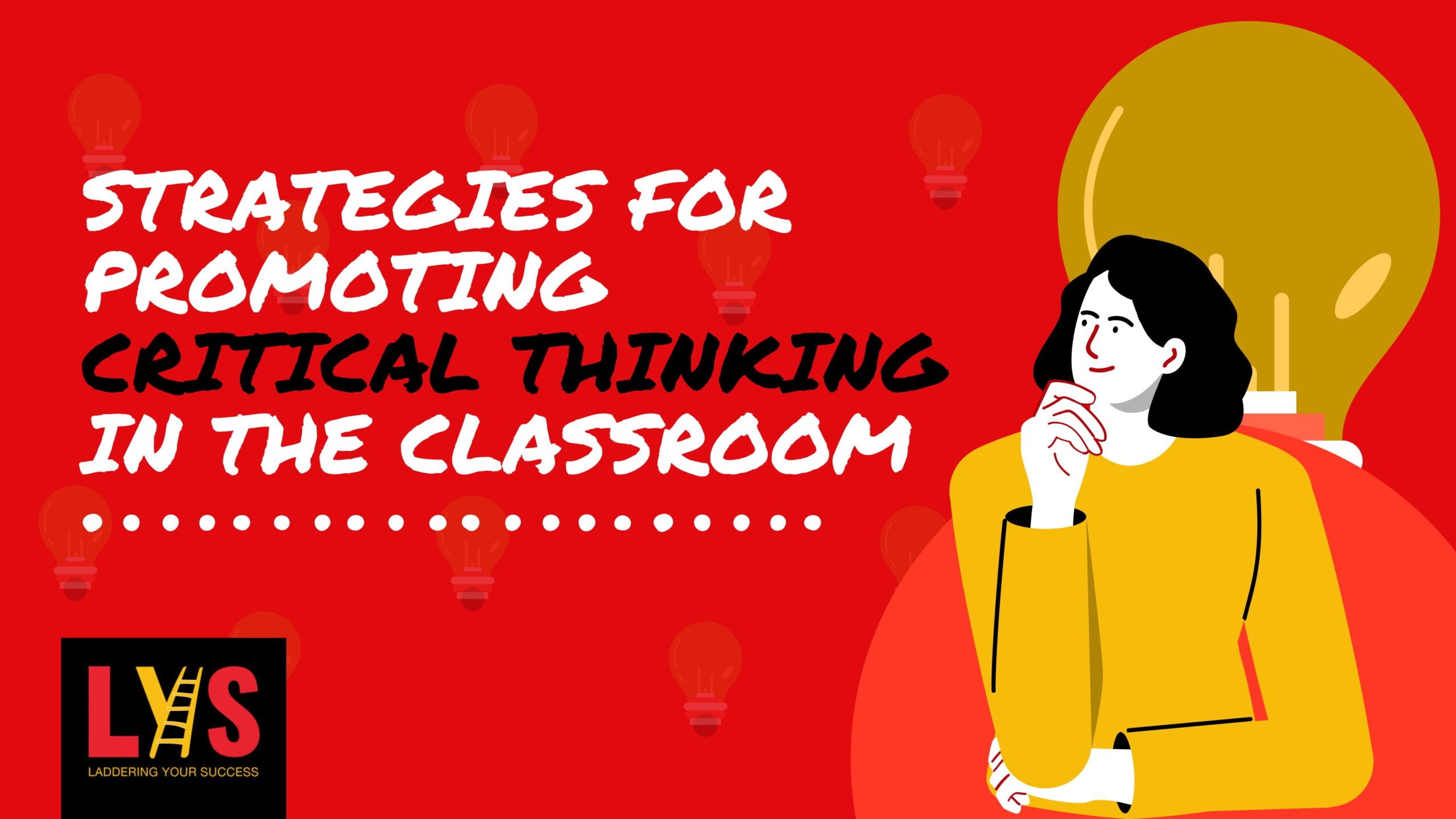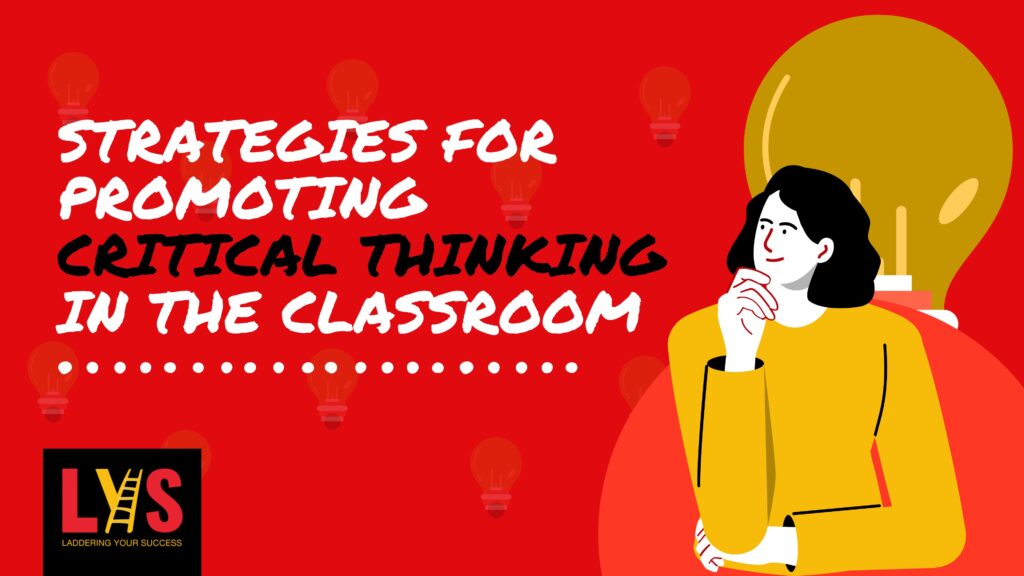Critical thinking has become one of the most valuable skills students can develop in today’s fast-paced world. It allows students to analyze information, evaluate arguments, solve problems, and make informed decisions. Teachers must help students develop this skill to ensure that they are ready for both academic success and real-world challenges. These are a few useful tactics educators can implement to encourage critical thinking in the classroom.
Encourage Questioning
Encouraging students to ask questions is one of the easiest ways to foster critical thinking. Students should be empowered to challenge what they are learning rather than taking it all at face value. Teachers can help create this atmosphere by encouraging curiosity, asking thought-provoking questions, and modeling curiosity themselves. Rather than offering solutions immediately, think about assisting students in solving problems independently. This will increase their level of engagement and develop their critical thinking abilities.
Use Open-Ended Questions
Asking open-ended questions with no right or wrong answer is a great way to get students thinking critically. Ask students to evaluate, interpret, or analyze the information rather than just recite specific facts. For instance, rather than inquiring about “What transpired in the story?”Why do you think the character made that decision, and how might it have affected the outcome? “, a teacher might inquire.These kinds of questions push students to think more deeply and make them use their knowledge and reasoning abilities.
Integrate Real-World Problems
Incorporating real-world problems into the classroom allows students to practice critical thinking in real-world situations. Students must use reasoning, creativity, and judgment to solve problems when faced with challenges such as analyzing current events, resolving community issues, or handling ethical dilemmas. Given their complexity and open-ended nature, real-world problems are perfect for honing higher-order thinking abilities.
If you’re having a hard time integrating real-life situations to your lesson plans, try out the LYS app! All lesson plans are TEKS aligned and have real-world lessons added in them. You can personalize them too!
Promote Group Discussions and Debates
Discussions and debates in the classroom are effective means of encouraging critical thinking. Students who participate in meaningful dialogue must listen to various viewpoints, formulate arguments, and present their own positions. During a debate, students also gain the ability to question and weigh opposing viewpoints. Teachers can help to facilitate these conversations by enforcing civil discourse and making sure that all viewpoints are heard.
Encourage Reflection
Reflection is a key aspect of critical thinking. Allowing students to take some time to reflect on their education aids in their information processing and comprehension assessment. Teachers can encourage reflection through journal writing, exit tickets, or group discussions where students share what they have learned, what challenges they have faced, and how they overcame them. Students gain self-awareness and a better understanding of their thought processes when they are encouraged to analyze and assess their own work critically.
Teach Problem-Solving Techniques
Critical thinking is often linked to problem-solving. Students’ critical thinking abilities can be improved by teaching them specific problem-solving techniques like mind mapping, brainstorming, and breaking problems down into smaller steps. With these resources at their disposal, students can tackle difficult issues more methodically and creatively as opposed to depending solely on rote memory or easy trial and error.
Encourage Multiple Perspectives
Facilitating the exploration of diverse viewpoints among students is a crucial tactic in fostering critical thinking. Fostering an environment where students are encouraged to examine alternative perspectives enhances their comprehension and sharpens their analytical abilities, whether the topic is historical events, scientific theories, or ethical dilemmas. Teachers can help with this by encouraging students to argue both sides of a debate, presenting opposing viewpoints, or role-playing.
Incorporate Project-Based Learning
Project-based learning (PBL) provides an excellent opportunity for students to engage in critical thinking. Students work with peers to investigate difficult questions, and through projects, they produce products or solutions based on their research. PBL fosters independence and provides students with the opportunity to pursue their interests while honing their critical thinking, problem-solving, and decision-making abilities.
Check out this article from Edutopia regarding PBL!
Foster a Growth Mindset
Fostering an environment in the classroom where progress and development are prioritized over perfection encourages critical thinking. Students are more willing to take intellectual chances and rise to challenges when they think they can improve with effort. By recognizing effort, encouraging perseverance, and redefining failures as teaching moments, educators can help students develop a growth mindset.
In conclusion
Encouraging critical thinking among students is crucial to their development as self-reliant thinkers and lifelong learners. Teachers can create an environment that fosters critical thinking by promoting discussion, encouraging questioning, using open-ended questions, integrating real-world problems, and teaching problem-solving techniques. Giving pupils the skills to think critically makes them more capable of navigating the world’s complexities and succeeding in any direction they decide to go. One of the most effective ways that educators can prepare their students for the future is by helping them develop this skill.









